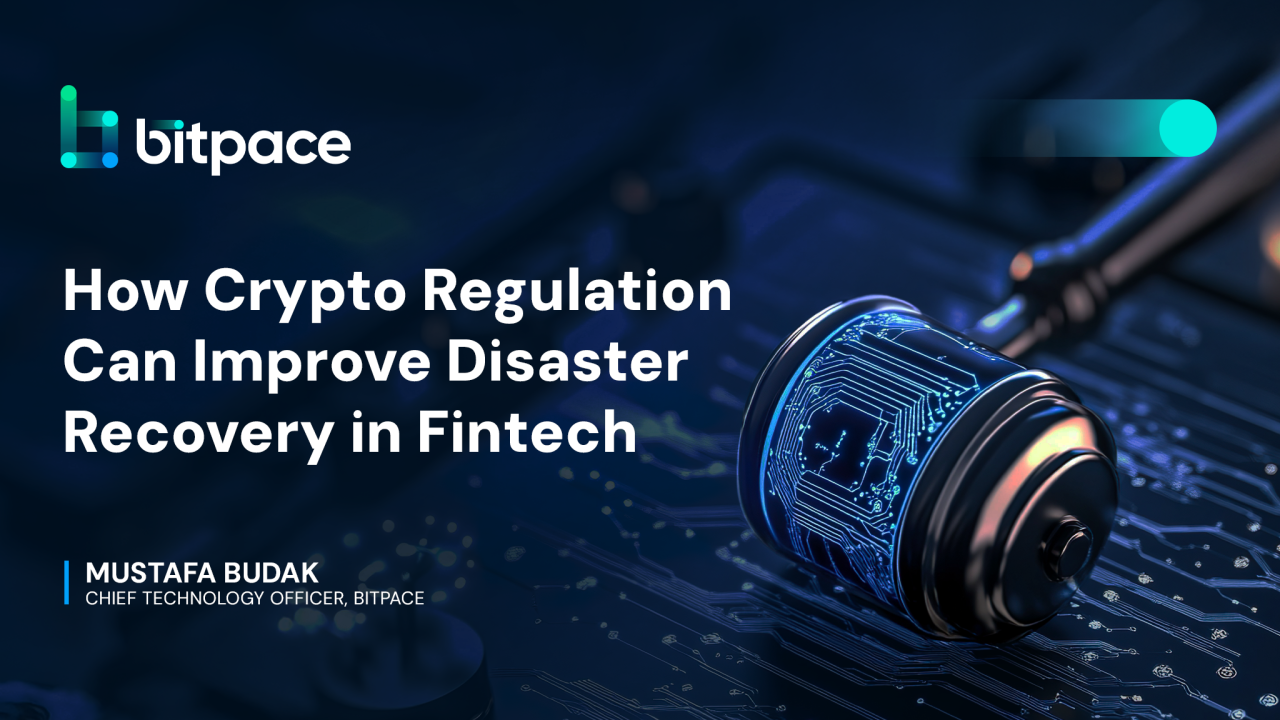The crypto and blockchain sectors are rapidly evolving, requiring strong business continuity planning to ensure stability amid regulatory shifts and market volatility. Firms must integrate compliance with robust information and communications technology ICT resilience, focusing on proactive risk assessments rather than just disaster recovery.
Strengthening resilience through disaster recovery
Fintech companies handle vast amounts of sensitive financial data, making resilience essential. Disruptions from cyberattacks, system failures, or natural disasters can have severe consequences. Effective backup and disaster recovery strategies mitigate these risks.
Key components of a disaster recovery plan:
- Regular data backups: Automated, frequent backups stored both on-site and in the cloud ensure quick data restoration.
- Cloud disaster recovery: Scalable and cost-effective cloud solutions provide geographically diverse storage to protect against localised disruptions.
- Disaster recovery planning: Clearly defined roles, communication protocols, and recovery objectives (RTOs/RPOs) ensure swift incident response. Identifying and prioritising critical business services, such as transaction processing and authentication systems, is vital to minimising operational impact.
- Testing and validation: Regularly testing recovery systems ensures effectiveness and minimises downtime.
Regulatory compliance and disaster recovery
Regulatory frameworks require fintech companies to maintain robust disaster recovery plans to protect customer data and ensure continuity.
- Compliance requirements: Regulations mandate backup frequency, recovery protocols, and adherence to cybersecurity measures.
- Resilience strategies: Enhancing security with encryption, multi-factor authentication, and regular audits strengthens overall preparedness.
EU’s Digital Operational Resilience Act (DORA)
DORA, effective January 2025, standardises digital resilience for financial entities, including crypto firms. It mandates risk management, reporting, and ICT resilience testing to withstand disruptions. Key aspects include:
- Impact tolerances: Defines acceptable downtime thresholds based on financial loss, reputational damage, and client impact.
- Critical business services: Identifies essential operations, like transaction processing, that require priority protection.
- Compliance complexity: Crypto firms face unique regulatory hurdles due to decentralised and borderless transactions, requiring transparency and adaptability.
Under DORA, third-party ICT service providers must also meet resilience requirements, pushing fintech firms to implement strong vendor risk management and contractually enforce security standards.
Implementing risk management under DORA
A strong risk management framework ensures operational stability:
- ICT risk assessments: Continuous security monitoring, vulnerability evaluations, and documentation of technical controls.
- Implementing a Zero Trust architecture (ZTA): Verification and authorisation improve resilience by enforcing strict access controls, continuous monitoring, and least-privilege principles. This ensures that even if attackers gain access, lateral movement is restricted, reducing the potential damage of a breach.
- Company-wide resilience training: Employees should be trained to recognize threats like phishing and social engineering, reducing risks before they escalate.
- Incident response planning: Classification-based reporting of incidents, ensuring regulatory compliance, and clear communication.
- Business continuity planning: Scenario testing for rapid system recovery, infrastructure resilience, and effective communication protocols.
- Simulated attacks and gamified disaster recovery testing: Beyond traditional exercises, fintech firms should engage in realistic simulations and gamified testing, including team cybersecurity challenges or real-time incident response scenarios.
Crypto firms must integrate proactive disaster recovery strategies to navigate evolving regulations and technological risks. By integrating these strategies, fintech and crypto firms can strengthen operational resilience, ensuring that they not only meet regulatory demands but also maintain trust in an increasingly complex digital landscape.
Mustafa Budak, CTO at Bitpace

